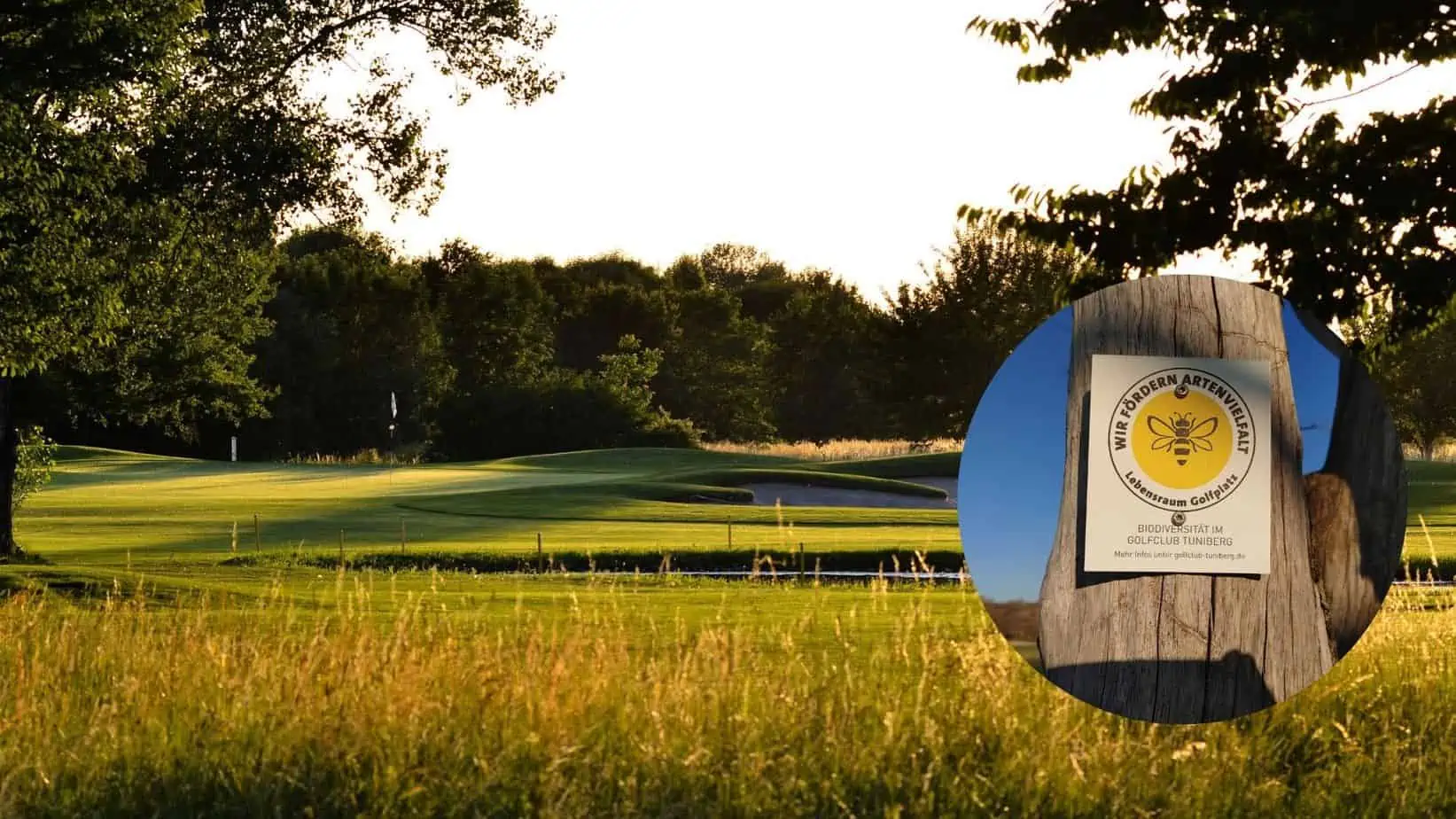GC Tuniberg: 90 hectares of natural oasis in the Black Forest
The motto of Golfclub Tuniberg is clear: “For us, combining sport and nature is a social obligation that we are happy to implement.” Steffen Braun, president of the facility, which stretches very nicely over 90 hectares of land with a view of the Vosges, adds: “We know about nature issues that the other clubs have only been dealing with for a few years have, since inception.”
Water protection area requires strict specifications
In fact, some areas of the golf club’s course are within Water Conservation Area 1 and 2, not an easy requirement for greenkeeping. “It’s clear anyway that we have to work without pesticides in these areas,” Braun sums up. The club has had a good relationship with the water utility, which supplies the region with drinking water, since it was founded in 1987.
This may also be due to the fact that the local authorities have long since recognized that a natural oasis has now emerged on the formerly agricultural site. Where a lot of corn used to grow, golfers can now experience pure nature. While Steffen Braun explains the different tracks, points out hedge structures and biotopes, things become clear. Of the 90 hectares, not even a third is actually used as a playing area. That may be one reason why a pair of storks on lane 1 feels quite safe in their nest. Tuniberg is one of the few golf courses in Germany where storks breed.
The large area means that the team of field workers around Head Greenkeeper Kai Neudecker leaves many areas of the unused areas to themselves. An ideal situation, for example, for the shy partridges that like to stay here on the facility. The club has created more and more of these in recent years. After the GC Tuniberg was certified with silver in the quality management program Golf & Natur of the German Golf Association, projects to protect the environment and nature are at the top of the project list.
Care of more than 500 fruit trees
Working with a beekeeper is just as important as protecting special areas for wild bees. With more than 500 fruit trees, the preservation of typical varieties is the order of the day. Fortunately, the club has also managed to enter into a cooperation with the local gardening school. Their students now take over the pruning of the fruit trees.
Participation in the project ” Habitat – We promote biodiversity ” of the Baden-Württemberg Golf Association was an obvious choice. “It is also important for us to create awareness of the topic among our members,” Braun sums up. A beautiful brochure, in which the individual natural areas on the course are presented, is a vivid contribution to the topic that hardly any other club can deliver in this high-quality form.
Insect hotel sets standards
An insect hotel is another of the club’s flagship projects. Designed by the greenkeeper himself, it extends over two by twelve meters within sight of a tee, so that the members also get an impression of the measure for more insect diversity. A few meters away, a small sign with the bee logo from “Lebensraum Golf Course” hangs on a tree. “We marked various habitats on the golf course in this way so that we could draw attention to the topic at all,” explains Braun.
Project new green spaces
With all the nature and environmental projects, the most important action of the past year is almost neglected: the greens have been peeled off, reseeded and are now supposed to ensure a better gaming experience this summer. In view of the special requirements of the water protection zones, maintaining the putting surfaces is not always easy. First-class quality without the large use of fertilizers and pesticides can only be achieved with intensive mechanical care and with the protection of the space.
Even the latter is not always easy: due to the favorable climatic location in Tuniberg, there is plenty of play even in winter. “Sometimes we have to slow people down and hold them back,” Braun sums up. Otherwise high game quality and environmental protection can no longer be achieved in the long term.








